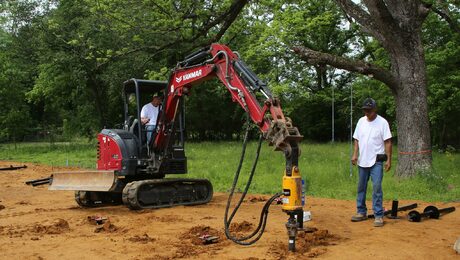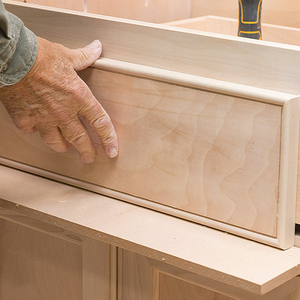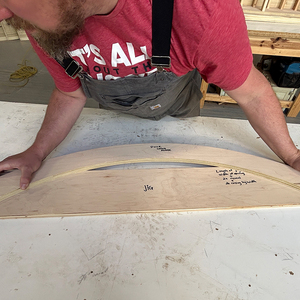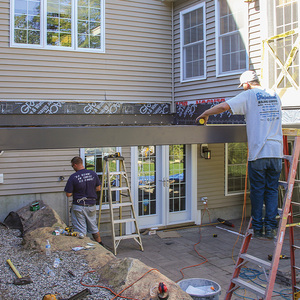I’ve been doing construction work for over 15 years now, but I’ve been working for other contractors, now that I’m on my own I need help coming up with the estimates. Is there a book I can get that can help me with estimating?
I want to charge a fair price but also make a profit and make a decent living. I do a little of everything, should I cut some of it out and just specialize in one area and grow from that?
Help please.



















Replies
If you are in remodeling using your previous 15 yrs. of experience, along with a good material list is way more close to perfect than taking a lin. ft. number out of a book. Usually.
If you don't want to take the job from start to finish in your mind (and on paper) than you might come close with a couple of books. I'm sorry, I can't give you the names of any, haven't looked at one in 20 yrs, that was a Means book.
Your markups and choice of expertise you will again have to think through. When a good sub can outproduce you it probably is time to use them. Remember too that specialization could possibly limit you in the amount of possible work. However, it can refine you to become very adept and profitable in your endeavor.
Best of luck.
A great place for Information, Comraderie, and a sucker punch.
Remodeling Contractor just outside the Glass City.
http://www.quittintime.com/
Edited 1/1/2007 7:27 pm ET by calvin
I like and always use the various R.S. Means yearly estimating guides available at Home Despot. Even got to use it to prove my charges in court!
I'm the one who won.
Forrest
you alone know what your overhead expenses are
you can get current quotes on materials
you solicit bids with Specifications for anything you have to sub
that leaves Direct Labor.. which is based on YOUR 15 years of experience
you put them all together to get direct costs
then you have to add your overhead
then you have to add your profit
the result is your bid price
which you have to
SELL !
Well said.Greg
http://www.wernerbuilding.net
hey i got a pic of me leaning on my truck , just like that ... only it was 1975
nice site
View ImageMike Smith Rhode Island : Design / Build / Repair / Restore
Mike, Website hasn't been up for that long. Thanks for taking a look though. Bad thing is I don't even have that rig anymore. Someday I'll update that pic on the site.
1975? I wasn't even around then.Greg
http://www.wernerbuilding.net
I've built my estimating system based on the Home Tech system. You can buy the book tailered to the costs in your region and start using it for about $80.00 a great investment. I use Quickbooks to track job costs across 25 categories and adjust the estimating assumptions accordingly. The home tech has a pretty aggressive mark-up suggested. If you go with their system you will likely not go broke, but you won't be the low bid either.
I have had a small sign posted front and center on my computer monitor for the last five years that says "You cannot work hard enough to make up for a sloppy estimate." Just keep that in mind, and remember that it is always better to go fishing and not get paid than to go to work and not get paid.
What helps me on smaller jobs or smaller parts of larger jobs is to sit down with a simple spreadsheet and work through all the material needed for each part. Break it down based on what makes sense.
Then I'll work through a time schedule, estimating what will happen each day.
To get the most out of this method it helps to update the spreadsheet as you work through the project, or at least at the end, to see how close the original guestimate was. This feedback helps you mentally adjust on the next project.
If you do the same types of projects it's quicker the second time around since much of the work has already been done on your first estimate. Modify it as needed, update materials costs and you're good to go.
This fairly simple method also gives you a decent material list and avoids pages of unnecessary information that clouds the issue.
Consulting an estimation book can help provide a ballpark, but all the estimation books will encourage you to take into account a large number of variables so you might as well detail it all out to begin with. Perhaps it will be a good secondary source.
Having said all that many trades have fairly simple rules of thumb for pricing and bidding.
As for specializing, that can be a double edge sword in carpentry unless it is something that is really in demand. Around here the specialized carpentry subs generally make less than the more generalized remodelers. The specialized subs can hire less skilled employees to do the same work since it's often very repiticious in nature, driving prices down.
On the other hand if you simply want to work on one thing then go for it.
What quality level are you most comfortable working at?
Beer was created so carpenters wouldn't rule the world.
Yes, the RS Means books are amongst the best. But you have to understand them which takes a bit.
First, the costs are kind of amalgamized. Then, you use one of their factors in the back of the book to localize it. Next, you need to understand that an estimate is made up of about a million trades in the book.
So if you were doing a kitchen, you would have to get pricing for every stage and add it up then factor it. It really can't be used for small jobs. Everything is pretty much priced based upon ln or sq foot which is only generally good for a sizable job.
But here's the best part of the book: It gets you thinking about the WHOLE job, every part of it and what it's going to take, more than what the book actually helps for price.
After using that, in the end the best way is to get a very good handle on what the competition is charging and that is the market price. If you can make money on that price, then that's one of your trades. If you can't then you need to "specialize."
Hope that answers your questions.
-Allon
http://www.hometech.com
Has a great book for numbers aimed at each specific geagraphical area. It is my bible.